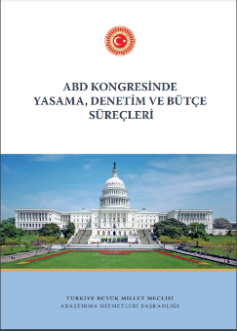 |
|
The US Congress is recognized as the most powerful parliament in the world, including European democracies. Despite the fact that its power has declined relative to ‘executive branch’ of government, like all legislative bodies in the complex modern world, Congress still makes effective decisions upon domestic and foreign policy, the role of government in society and how the government activities will be financed.
A better understanding of the position and importance of parliaments in the constitutional system is possible with sufficient, up-to-date and accurate information about the basic rules and institutions that determine the functioning of parliaments.
This new study of the Parliamentary Research Services aims to examine in detail the legislative, oversight, and budget processes of the US Congress. In the study, general scope of the legislative, executive, and judicial organs, the principle of separation of powers that shape the relations between the organs, the structure of the Congress, the membership of the Congress and the working timetable of the Congress, the structure and functioning of the Congress committees and the working procedures and principles of the general assemblies were explained. The legal basis of the power of the Congress, the oversight mechanisms of the Congress and the approval process that took place in the Congress regarding the appointment of high-level public officials were also mentioned. Finally, the role of the Congress in the preparation, implementation and supervision of the US federal budget, which is a complex activity, was discussed. The study, which examined the procedures and principles regarding the legislative and supervisory activities of the Congress, showed that the Congress has many unique features.
|







